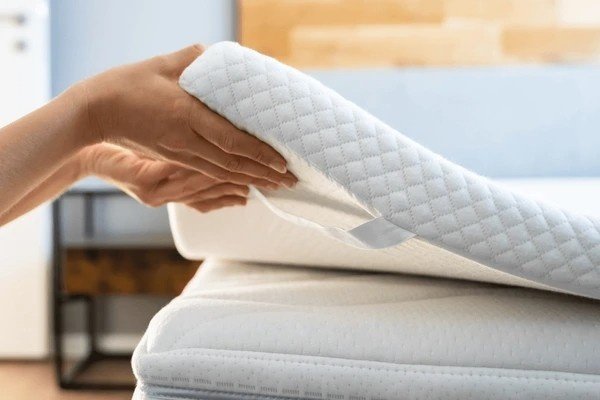When I decided to enhance the security of my home, I turned to solar-powered security cameras. They seemed like a smart choice—environmentally friendly, cost-effective in the long term, and low-maintenance. However, with so many options on the market, I quickly realized how daunting it could be to choose the right one. That’s why I decided to create this guide to walk you through the key factors I considered when selecting the best solar-powered security cameras for my home. By the end of this article, you’ll have a clear understanding of what to look for and how to make an informed decision.
Table of Contents
Why Choose Solar-Powered Security Cameras?
Before diving into the specifics of how to choose the best solar-powered security camera, I think it’s important to understand why these cameras are gaining popularity. Solar-powered cameras offer numerous benefits that make them appealing for homeowners looking for efficient, reliable security solutions.
Environmental Benefits
Solar-powered cameras run on renewable energy, meaning they are eco-friendly. They help reduce your carbon footprint, especially when compared to traditional wired cameras that rely on electricity.
Cost Savings
Solar-powered cameras might seem like a larger upfront investment, but over time, they save you money on electricity bills. Since they are powered by solar energy, you don’t need to worry about replacing batteries or running wires to your home’s electrical system.
Easy Installation
These cameras are wireless, so installation is often much easier compared to wired alternatives. You won’t need an electrician to install them, saving both time and money. You can place them anywhere as long as there’s sufficient sunlight.
Low Maintenance
Since they are powered by solar panels, solar-powered security cameras tend to require less maintenance. There’s no need to constantly check and replace batteries, making them a convenient and hassle-free security solution.
Key Factors to Consider When Choosing Solar-Powered Security Cameras
After looking at several options, I realized that there are several important factors to consider when selecting a solar-powered security camera. Each factor influences the overall performance and suitability of the camera for my needs.
1. Camera Resolution
The first thing I looked at was the camera’s resolution. A camera with a higher resolution ensures that you capture clearer and more detailed footage, which is essential for identifying faces, license plates, or other details in case of an incident.
Most solar-powered cameras come in resolutions ranging from 720p to 4K. While 720p may be enough for general surveillance, I opted for a 1080p camera because it provides a good balance of quality and cost. If you need detailed footage for specific areas like your driveway or entrance, I’d recommend going for at least 1080p.
2. Battery Life
One of the main selling points of solar-powered security cameras is that they don’t need frequent battery replacements. However, it’s crucial to check the battery life before choosing a model. I wanted a camera that could continuously run throughout the day and night, even if it wasn’t exposed to direct sunlight for a few days.
The best solar-powered security cameras come with large, high-capacity batteries that can store enough power for several days, or even a week, without sunlight. I checked the manufacturer’s specifications to ensure that the camera I chose had a battery life that suited my needs, especially in areas with occasional cloudy days.
3. Solar Panel Efficiency
The solar panel’s efficiency plays a significant role in ensuring the camera is constantly powered. A low-efficiency solar panel may not generate enough power, especially if the camera is positioned in a location that doesn’t get much sunlight. In my case, I made sure that the camera I chose had a solar panel that was powerful enough to provide a steady charge throughout the day.
When considering solar panel efficiency, look for features such as high conversion rates and weather-resistant materials, which are crucial for long-term performance.
4. Night Vision
Since security cameras are often used to monitor the property at night, I found that night vision was an important factor. Cameras with infrared (IR) night vision allow you to see clearly in low-light conditions. Without good night vision, the camera may be useless in the dark.
The best solar-powered cameras come equipped with a decent range of infrared night vision, allowing clear footage even in complete darkness. I made sure to check the range of night vision (in feet) to ensure that it covered the areas I wanted to monitor.
5. Motion Detection and Alerts
Motion detection is a key feature that most modern security cameras have. I wanted a camera that could detect movement and alert me in real time if something was amiss. Solar-powered security cameras typically come with either passive infrared (PIR) sensors or advanced AI-based motion detection.
In my experience, PIR sensors work well for most home security needs, but if you’re looking for more accurate detection, consider models with AI-based motion detection. These cameras are capable of distinguishing between people, animals, and vehicles, reducing the chances of false alarms.
6. Storage Options
I also considered how the camera stored footage. Many solar-powered security cameras offer cloud storage or local storage via microSD cards. Cloud storage often comes with a monthly fee, but it offers peace of mind, knowing that your footage is stored securely off-site. Local storage, on the other hand, is free but may not be as secure if the camera is tampered with.
I chose a camera that offered both options, allowing me to choose between storing footage on a cloud service or locally, depending on my needs.
7. Durability and Weather Resistance
Since my solar-powered cameras would be placed outdoors, I needed them to be durable enough to withstand the elements. Most cameras are built with weatherproof materials, but I made sure to check the camera’s IP rating (Ingress Protection) to ensure it was resistant to rain, dust, and extreme temperatures.
The ideal camera should have an IP rating of at least IP65, which ensures that it can handle rain and dust. If you’re in an area with harsh weather conditions, consider cameras with higher ratings, like IP66 or IP67.
8. Installation and Mounting Options
As I mentioned earlier, one of the major benefits of solar-powered cameras is their ease of installation. These cameras are often designed for DIY installation, but I still made sure to check the mounting options to ensure that they would be easy to set up around my property. Some cameras come with adjustable mounts, making it easier to position them in the ideal location.
9. Price
While price shouldn’t be the only consideration, I made sure to balance my budget with the features I needed. Prices for solar-powered security cameras can vary widely based on features, brand, and quality. I found that spending a bit more on a reputable brand with good customer reviews made all the difference in terms of performance and durability.
Comparison Table of Popular Solar-Powered Security Cameras
Below is a comparison of some of the most popular solar-powered security cameras I considered, along with their key features.
| Camera Model | Resolution | Battery Life | Solar Panel Efficiency | Night Vision | Motion Detection | Storage | IP Rating |
|---|---|---|---|---|---|---|---|
| Model A | 1080p | 6 months | High | 33 feet | PIR | Cloud/SD card | IP65 |
| Model B | 4K | 3 months | Medium | 50 feet | AI-based | Cloud/SD card | IP67 |
| Model C | 720p | 4 months | High | 40 feet | PIR | Local/Cloud | IP66 |
| Model D | 1080p | 8 months | Very High | 45 feet | PIR | Cloud | IP65 |
As you can see from the table, the main differences between these models lie in the resolution, solar panel efficiency, and motion detection capabilities. Choose the one that aligns with your security needs and budget.
Conclusion
Choosing the best solar-powered security camera for your home comes down to balancing performance, features, and budget. After considering factors like resolution, battery life, solar panel efficiency, and durability, I was able to select a camera that fit my needs perfectly. Whether you prioritize high resolution for clear images or the ability to withstand harsh weather conditions, there’s a solar-powered security camera out there that’s right for you.
By following the steps outlined in this guide, you can make an informed decision and improve the security of your home while enjoying the benefits of solar power.





